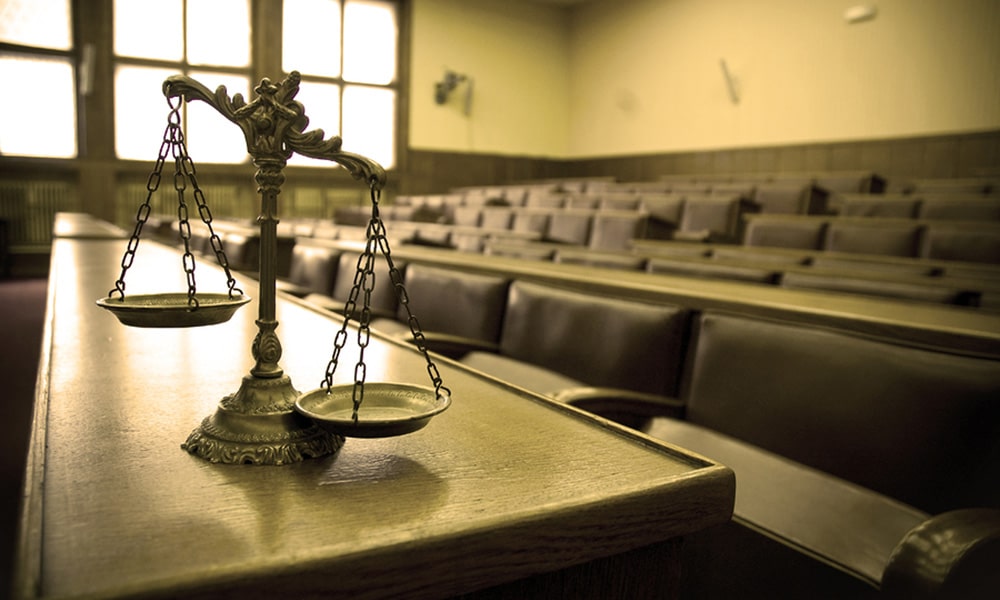How to Deal With Municipal Offenses
Municipal offenses, though often considered minor compared to felonies or misdemeanors, can have significant consequences. These violations are typically governed by city or local ordinances and can include acts like public intoxication, disorderly conduct, or minor traffic infractions. Even when the penalties seem minimal, municipal offenses can affect your record, finances, and future opportunities if not handled appropriately.
Understanding how municipal offenses are handled in Denver and taking the proper steps to address them is essential for protecting your rights. This guide explains the nature of these offenses, their potential impact, and how the legal team at Daniel M. Murphy, P.C., can help you navigate the process effectively.
What Are Municipal Offenses?
Municipal offenses are violations of local laws created by cities or municipalities. These rules are meant to address conduct that disrupts public order or violates community standards. While they are generally less severe than state or federal crimes, the penalties for municipal offenses can still impact your daily life.
Examples of municipal offenses include:
- Public intoxication.
- Disorderly conduct.
- Trespassing.
- Petty theft.
- Noise ordinance violations.
- Traffic infractions, such as running a red light or speeding.
These offenses are typically classified as either civil infractions or low-level criminal violations. Although they may not always carry harsh penalties, failing to address them can result in escalating consequences.
How Municipal Offenses Affect Your Record
- Whether a municipal offense impacts your record depends on how it is classified and resolved. In Denver, municipal offenses generally fall into two categories:
- Civil Infractions: Many municipal violations, such as minor traffic offenses, are treated as civil matters. These do not create a criminal record but can result in fines, points on your license, or other penalties.
- Criminal Violations: Certain municipal offenses, like disorderly conduct or petty theft, may be classified as misdemeanors. A conviction for these offenses can lead to a criminal record that shows up on background checks.
For example, accumulating too many points on your driving record can lead to license suspension, while a criminal misdemeanor may impact your ability to secure employment or housing.
Potential Consequences of Municipal Offenses
The penalties for municipal offenses in Denver vary depending on the type and severity of the violation. Common consequences include:
- Fines: Monetary penalties are the most common outcome for municipal offenses. While some fines are relatively small, they can add up if left unpaid or if multiple offenses occur.
- Community Service: Courts may impose community service requirements, particularly for first-time offenders or those with non-violent violations.
- Educational or Rehabilitation Programs: Offenses related to substance use, such as public intoxication, may require participation in alcohol education or counseling programs.
- Criminal Record: If the offense is classified as a misdemeanor, a conviction can result in a criminal record, affecting future opportunities for employment, housing, and education.
- License Points and Suspension: For traffic violations, points added to your license can lead to increased insurance premiums and even suspension for repeated infractions.
Even seemingly minor offenses can create long-term challenges if not handled properly, making it essential to address them promptly and strategically.
Best Practices for Handling Municipal Offenses
To minimize the impact of a municipal offense, it’s important to take the right steps. Here are some best practices to follow:
- Respond Promptly: Ignoring a citation or notice can lead to additional fines, penalties, or even a warrant for your arrest. Address the issue as soon as possible to avoid escalation.
- Understand the Local Ordinance: Municipal laws vary widely between cities. Reviewing the specific ordinance you’ve been charged under helps you understand the potential penalties and available defenses.
- Explore Diversion Programs: Many first-time offenders are eligible for diversion programs that allow for reduced penalties or dismissal upon successful completion of requirements such as community service or educational courses.
- Emphasize a Clean Record: If this is your first offense, courts may be more lenient, offering reduced penalties or alternative resolutions. Demonstrating responsible behavior and a clean record can work in your favor.
- Consult an Experienced Attorney: A skilled lawyer can evaluate your case, explain your options, and help you build a strong defense. Legal representation is especially important if the offense carries the risk of a criminal record or severe penalties.
By following these steps, you can navigate the legal process more effectively and minimize the impact of a municipal offense on your life.
Why You Need Legal Representation for Municipal Offenses
While some people may choose to handle minor violations on their own, hiring an attorney is often the best way to protect your rights and achieve the most favorable outcome. Here’s why legal representation matters:
- Understanding the Law: Attorneys are familiar with Denver’s municipal codes and know how to identify weaknesses in the prosecution’s case.
- Negotiation Skills: A lawyer can negotiate with prosecutors to reduce fines, avoid a criminal record, or secure placement in diversion programs.
- Minimizing Long-Term Impact: Legal counsel ensures that you address the offense in a way that minimizes its effect on your record and future opportunities.
- Courtroom Advocacy: If your case goes to trial, a skilled attorney will present a strong defense on your behalf.
For offenses that may seem minor but have the potential to escalate, working with an attorney can save you time, money, and stress.
How Daniel M. Murphy, P.C., Can Help
At Daniel M. Murphy, P.C., we understand the complexities of Denver’s municipal laws and the potential consequences of even minor violations. Our legal team is dedicated to helping clients navigate municipal offense cases with confidence and clarity.
We provide:
- Detailed Case Evaluations: We’ll analyze the circumstances of your case to determine the best course of action.
- Strong Defense Strategies: From negotiating reduced penalties to exploring diversion options, we’ll advocate for the most favorable outcome.
- Courtroom Representation: If your case requires a trial, we’ll present a compelling defense to protect your rights.
- Expungement Assistance: For eligible offenses, we can guide you through the process of clearing your record to safeguard your future.
Whether you’re dealing with a traffic violation, a public intoxication charge, or another municipal offense, our firm is here to provide the legal expertise you need.
Take Control of Your Future
Municipal offenses may seem minor, but they can have lasting consequences if not addressed properly. By acting quickly, understanding your rights, and working with experienced legal counsel, you can protect your record and future.
Contact Daniel M. Murphy, P.C., in Denver, CO, today to schedule a consultation and learn how we can help you handle municipal offenses effectively.




